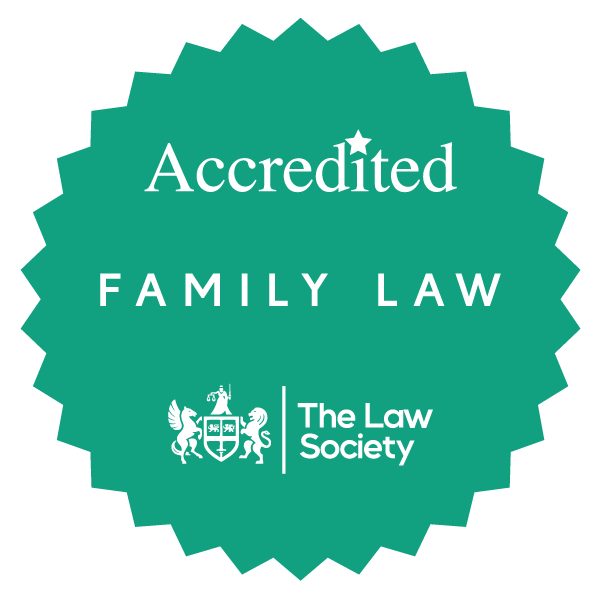testimonials
I got a five-star service. I approached Curwens after being threatened with legal action by common beneficiaries of a Will. Sara Alili worked through the complexities of the case, summarising my position at relevant junctures in a way I could understand and achieved satisfactory outcomes without disturbing other relationships. And I was pleasantly surprised [by the bill]. For any other legal business Curwens will definitely be my first port of call.
Mark L. from St Albans
Very happy with the service I received, Liam advised me and helped me evict a tenant who was not paying the rent. I highly recommend Curwens. They are professional and friendly and their prices are very reasonable
Chris from Tottenham
We needed to get Wills and LPAs for my parents. Amy Anderson was an amazingly helpful and pleasant first point of contact. Anne Stennett was excellent with my elderly parents, very patient and clearly explained our options. We will be hiring the firm again for other members of our family.
Mr Patel from North London
Vijaya Sumputh looked after my Financial Remedy matter. She guided me step by step explaining everything with calmness and in a simplistic manner which was extremely helpful throughout, and I really appreciate the time and effort and conscientious attention she spent. Please request to see Vijaya for any family related matter.
Dev from London N9
It was a pleasure dealing with Gerard and his team, who provided our board with very clear and detailed legal advice upon which we could make our decision. Communication was prompt and courteous. Thank you and your team for your support and assistance.
Mark R. from Thaxted, Essex
We highly recommend Curwens. The whole team were amazing from start to finish. Bradley is the most responsive person I’ve ever had the pleasure of working with! This was our first purchase. They helped, guided and supported us through a difficult process. We’re so grateful to Bradley for all his hard work and dedication. Couldn’t recommend more highly and I’ve already recommended him to my whole family!
Sara C. from North West London
I couldn’t have asked for better legal support from Omar. He was friendly, honest, and clear in explaining possible outcomes, always considerate when giving advice. His professionalism and dedication gave me confidence throughout a stressful employment matter. I truly appreciate his support and highly recommend his services.
Yediker from North London
I have just used Curwens for my conveyancing. I can only give them the highest praise. I had a lot of contact with Sophie Hills & also the wider team members. Sophie was amazing always getting back to me very promptly. I found the whole process very smooth. The service I received made the whole process less stressful. I would highly recommend using Curwens.
Denise from Newmarket
Sara and Liam took over a complex eviction and counterclaim and were able to get to grips with the intricacies incredibly quickly. [I received] clear, strategic advice from the outset. They were highly professional, responsive, and reassuring, and thanks to their expertise, the case reached a successful conclusion far more efficiently than I’d expected. Professional, AND Efficient. I’d recommend Curwens Solicitors to anyone dealing with a complex legal issue.
Nick from London
Sarah Canfield helped guide me through my separation and divorce. She always provided me with clear, well explained, fair and level-headed advice and support. She was the voice of reason and support I needed when dealing with challenging and unfamiliar situations. I would whole heartedly recommend her.
Shelley from Hertfordshire
I have worked with Curwens several times since 2018. Bradley Bernett’s conveyancing team have been highly professional and efficient, consistently ensuring smooth and successful transactions for each of my property purchases. Highly recommended!
Zhang Wen from Central London
Anne and Josephine were very friendly and helpful in helping and sorting out my partner’s probate. I will be using them to help me make my own Will.
Janet from Enfield
Anne Stennett was a pleasure to deal with and made the process of updating our wills and LPA's an easy task. Anne was ably supported by Amy Anderson who booked meetings and was the first point of contact. Thank you both.
David B. from Finchley
My sister chose Curwens to manage my father's estate when he passed away without a Will of his own. I, my mother and husband used them for our Wills. Alexandra was an absolute delight to deal with. Polite, friendly, knowledgeable, thorough and professional. She instils confidence. Curwens most definitely have our recommendation.
Lucy from Hoddesdon
Bradley Bernett made the entire purchase run like clockwork. He kept me fully updated at every stage, was crystal-clear about the next steps and took the time to explain anything I didn’t understand. Thanks to Bradley’s diligence and calm guidance, the process was genuinely stress-free. I highly recommend him to anyone looking for a first-class property solicitor.
Dr Hudson from Kensal Green
Sara and Liam were extremely helpful on an issue, regarding an outstanding debt for my business. A swift and strong communication from Curwens, along with further chasing was able to recover the debt owed for a very reasonable cost.
Joseph from East London
Curwens are the best solicitors. Omar Qassim worked with an extremely tight deadline with sensitivity, good humour and [his] experience and gave me every confidence. He was efficient and effective and an absolute pleasure to work with. I feel very lucky to have had him represent me.
Sara from North Kent
Living in the United States added another level of complexity to an already difficult process. Anne Stennett handled my Dad’s probate with exceptional skill, compassion and professionalism. She was dedicated, caring, and incredibly helpful throughout. We couldn’t have asked for better support during such a challenging time.
Jacqueline M from Maine, USA
The team at Royston, mostly Stevie, Sophie and Pamela, dealt with our house sale and purchase. We can't recommend them enough, it wasn't a straightforward sale or purchase, but they were really helpful and professional throughout.
Dave & Irene from Maldon
I have been using Curwens Solicitors for close to a decade for property transactions as well as family matters. I would recommend them to anyone looking for help on conveyancing and legal matters. Their approach has always been incredibly professional while remaining friendly and courteous.
Greg from North London
I had the good fortune to engage Sara Alili. My case was delicate. I needed a solicitor who was knowledgeable and robust yet could treat her clients with respect and humility. I was thoroughly impressed with every aspect of Sara’s work. She secured a successful outcome, and I would not hesitate to recommend her.
Lee from Hertfordshire
Big massive thanks to Christina, Bradley and Elif for their tireless efforts to ensure we completed on time. They worked hard [and] were always contactable. In the past, we have always had issues with Solicitors and long delays. Curwens really were fantastic. Looking forward to working with you again.
Mary from Cockfosters
I had the pleasure of working with Zen Thompson, and I couldn't be more impressed with his service. He was incredibly efficient, professional, and always kept me well-informed throughout. His expertise and attention to detail made everything seamless and stress-free. I would wholeheartedly recommend him to anyone in need of a reliable and skilled solicitor.
Adrienne from Bishops Stortford
Very good firm of solicitors. Dealt with Alexandra Ridley who is excellent - she is highly professional, efficient and attentive; as well as being warm and friendly. I have no hesitation in recommending this excellent law firm.
Elisabeth from Finchley, N3
We were recommended Bradley Bernett for our recent purchase. He was super helpful, very responsive and pleasant to deal with. As first time buyers, we had loads of questions and a big thank you to Bradley and the team for their patience, advice and time. We are very grateful. Highly recommended!
Larisa from Greenwich, SE10
We truly appreciated the friendliness and support we received from everyone involved. Navigating the property market can be quite overwhelming, but Curwens made the process feel simple and hassle-free. [Curwens] professionalism and commitment shone through every step of the way.
Alex from Royston
I had the privilege of being represented by Omar Qassim, who was calm, reassuring, and incredibly knowledgeable. Omar’s expertise in employment law is second to none. He took the time to fully understand the complexities of my case and guided me through every step of the process with clarity and professionalism.
Melanie D from EN1
We’ve worked with Bradley and the team for over 10 years on several property conveyancing matters. Always dependable, swift and smooth to work with. We’ve have recommended many friends to Curwens and will continue to do so. Highly recommended.
Hannah from North London
Anne and her team were extremely professional, helpful and efficient during the management of the Estate following the passing of a recent family member. The diverse locations of the deceased and Executors resulted in quite a complicated process and the level of support provided was exceptional.
Mr Harper from Scotland
Many thanks to Maria at the Hoddesdon office for exceptional work for our first home purchase. Always responsive, efficient, and a pleasure to work with. We were impressed by how quickly everything was completed, especially compared to the experiences other people we know. The whole process was very stress free. Would definitely recommend!
Joe from Hoddesdon
Alexandra provided a very professional service. She took time to listen to all our requirements when preparing our Wills and provided proposals to meet our needs. She explained each step thoroughly, making sure we understood all legalities. We would not hesitate to call upon her services again.
Mrs Charalambos from EN4
I had no end of trouble getting solicitors to respond to my need of certifying some documents. John was very helpful and went through everything with me so I was able to get my documents certified. I would definitely recommend using Curwens and would use again if I need their services.
Rebecca from North Hertfordshire
Pam and her team (Sophie, Stevie and Rachel) did an amazing job with our house sale and purchase. They had great attention to detail, were excellent with advice and really responsive throughout, ensuring everything went smoothly for us. Would highly recommend!
Stig from Royston
Excellent service from Curwens. They were very efficient, friendly, informative and never failed to respond to my many questions. Used for Probate and Conveyance. Highly recommend their services.
Sharon from Essex
Had the pleasure of using John Riddett’s services. He went above and beyond to help me at short notice, making a stressful situation much easier to navigate. I highly recommend him to anyone in need of legal assistance!
Elena A from Herts
















